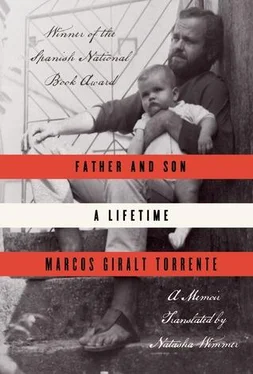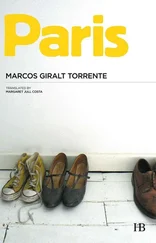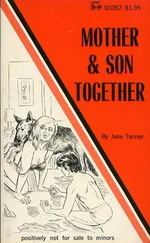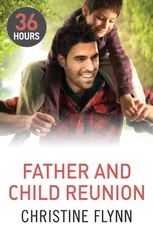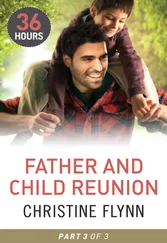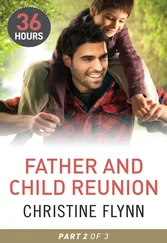* * *
My father died in February. By December we knew what was coming. He, apparently, let himself be deceived. At the end of January, he experienced a fleeting revival thanks to the cortisone, and when this wore off like the illusion it was, he attributed his rapid weakening to the belated effects of the last chemotherapy session. He repeated this to everyone who came to see him. Especially the doctors who made house calls. Polite and formal until the end, he begged their pardon for being unable to get up, for making them come to him. I called the angels of death one Saturday when he began to speak incoherently, and on Sunday morning a doctor and a nurse came. They were with us for four hours, during which they gave him the first dose of drugs (an opiate, and a derivative of lysergic acid to combat the nightmares) and showed me how to give him further doses as needed, until in two or three days the end came. They left us prepared to expect a wait, but as so often over the course of his illness, there was no wait. My father died that same night. He died alone, in his room, while in the living room my mother and my wife tried to convince me to go in to him, since — as indeed happened — he might die that very night. I refused because it had been an especially hectic day, with multiple visitors in addition to the doctor and nurse, and I wanted to let him rest, and also because we’d had the same argument the night before and I felt bolstered by the precedent. Though his death loomed over us, and at moments I wished for it, I refused to contemplate it. I won the argument, as I had won it the night before, and when my wife and I went into his room half an hour later, this time with the practical purpose of turning him in bed, my father was gone. That’s the main thing I remember. The feeling that he had gone. Of course there were tears, scattered words, hurried searches for a mirror, tremendous anxiety, and at last, when we had accepted that he was dead, I embraced him and began to talk to him as if he could still hear me. And yet in all that time, ever since I had come into the room, I never lost the feeling — the painful feeling, because it was a physical absence — that my father was gone. The body that lay in the bed and that I was embracing was no longer my father. My father had vanished, had gone to nowhere, the place where memory is defeated and disappears. For the first and only time in my life, my hopeful agnosticism gave way to the harshness of atheism.
Two hours later I helped a nurse prepare his body for burial. Ten hours later I was heading into one of the big department stores to buy the outfit that I would wear at the wake. Twelve hours later I was calling the art critics at the three big national papers to give them the news and ask them to write his obituary. Two days later I received the urn with his ashes, and I buried it, at his sister’s request, where his parents lay. Four days later, on my own, I got rid of most of his clothes. Three weeks later I emptied his apartment. A month later I moved his paintings to a new storage space out of fear that the friend he met in Brazil would try to seize them. Two months later the work on my mother’s old apartment was finished, the place where my wife and I were supposed to live with him. The day of the move, I gave away the ergonomic chair he had used during most of his illness. Three months later, on a terrace at the Círculo de Bellas Artes in Madrid, I hosted a cocktail reception with jazz, the party he had requested as a lay funeral. While I was organizing it, I couldn’t help thinking that he would have been horrified at the expense, but — always unsure of my affections — he wouldn’t have been unmoved by this public display of filial loyalty. Four months later I retrieved his last paintings from the studio of the artist friend who had been keeping them since September, leaving behind his easel, a chest of drawers, two chairs, a big basket for papers, and a table. I spent an afternoon choosing what to get rid of, what to keep, what to give away. Five months later I went on vacation. Seven months later I got rid of his glasses. I threw them, along with his last bag, into a Dumpster.
This is the first thing I wrote when I could write:
It’s been eight months since my father died and two years since we learned that he was sick. In all this time I’ve hardly written a thing. I didn’t have the time or the head for it. I haven’t read, either. I’ve lived facing outward, split into as many facets and tasks as his needs demanded. I’ve been his main companion, his intermediary with the doctors, his psychologist, his helper, his executive arm, his waiter and nurse. I’ve set my own life aside, annulled myself, and merged with him. I’ve been his partner, the person who accompanied him to the hospital on chemotherapy days, who stayed with him while the treatment was administered, who took him home, who answered his questions, who supplied the strategies of deceit calculated to nourish hope and who consoled him when hope was elusive, who encouraged him to make the decisions that only he could make and who began to make them for him when he couldn’t make them. It was I who designed the approach to his future and set it in motion, making sure that each element, each thing that I did or suggested, seemed normal and not dictated by his impending death. I’ve measured my words, I’ve made jokes when I didn’t feel like it, I’ve lied, I’ve held my tongue, and I’ve meted out my silences when the vagaries of his married life advised it. I’ve gone to live with him, done the shopping for him, cooked; I’ve spent all day on the phone trying to get information, dealing with bureaucracy, asking for help, giving detailed accounts of his condition to everyone who called. I’ve signed papers, I’ve talked to notaries and lawyers, I’ve secured the money from the sale of the house that he shared with his wife, I’ve made transfers, rented safe-deposit boxes, and negotiated with bank employees. I’ve transported furniture and paintings, I’ve rented storage spaces to keep them in, I’ve been builder and architect of the house where we were going to live, as well as of the little studio where he was supposedly going to paint as long as illness permitted, but most of all I’ve lived for him, only him. I’ve had no other occupation. I’ve learned to watch him, to be alert to his changing symptoms in order to anticipate the different ends that his many metastases left unknown, consulting with doctors, planning the exact time to step in (neither too soon nor too late, as he asked me to do when he learned he was sick, though he didn’t want to know too much about it). I’ve visited pharmacies and clinics almost daily, I’ve taken care of unexpected cuts and scrapes, I’ve helped him in and out of bed, I’ve led him to and from the bathroom, I’ve feared his death, I’ve wished for it at moments, and when all that was left was suffering and no joy that the pain didn’t cancel out, I made the call that he asked me to make. I received the doctors who this time weren’t coming to heal him, I let them teach me what to do, I waited for his death, I saw him die, and I dressed him in his burial clothes. I’ve carried out his wishes in every possible way, and the effort of it has left me exhausted. Exhausted and empty.
I never thought it would be so simple. I always imagined that it would be more tortuous, that the skein we had patiently wound between us wouldn’t vanish with him.
Then come all the failed attempts that I talked about at the beginning.
I’ve included parts from some of them in this book.
And all the reading about fathers and mothers and mourning that I talked about too.
But I wasn’t constant.
For a long time I was lost, and I let time go by. I did things I shouldn’t have done.
Читать дальше
